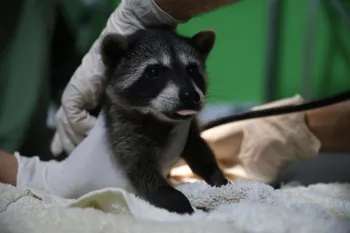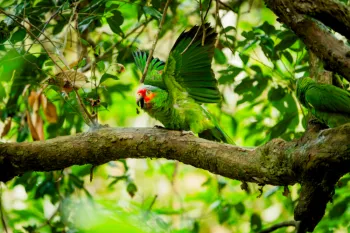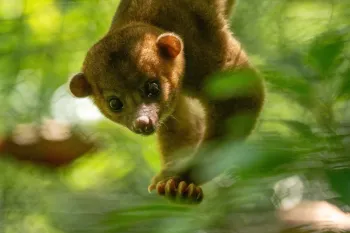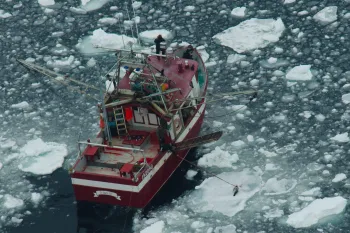PETEN, Guatemala—Fourteen mammals and birds, including species classified as domestically endangered or vulnerable, have been released back into the wild of the Guatemalan rainforest after being rescued and rehabilitated from negative human interactions.
Wildlife NGOs Asociacion Rescate y Conservacion de Vida Silvestre, known locally as ARCAS, and Humane World for Animals Costa Rica (formerly called Humane Society International/Latin America) released the animals in the Yaxhá Nakum Naranjo National Park, in Petén. The organizations say that as human urbanisation expands throughout the country, wild animals and their habitats are increasingly negatively impacted. Baby animals can be stolen from their mothers for the pet trade, be persecuted or captured when they wander into human settlements built on the border of their wild homes, injured in traffic accidents or electrocuted by power lines as a result of habitat fragmentation. Finding a harmonious balance of human-wildlife coexistence is an ongoing challenge, say the charities, and too often wild animals and birds fall victim to misfortune and require rescue and rehabilitation.
Most of the animals in this release, including a collared hawk, opossums, white-nosed coati, a raccoon and black howler monkeys, arrived at the ARCAS sanctuary as babies or juveniles separated or taken from their mothers to be used as pets. Two endangered howler monkeys had old fracture injuries to the forearm or face and one was significantly malnourished. A collared forest falcon who had killed some chickens for food in someone’s backyard was “punished” by having their primary feathers cut off. They took nearly 18 months to regrow once the bird was in rehabilitation.
Andrea Borel, executive director of Humane World for Animals Costa Rica was present for the rainforest release and said: “Our precious and imperilled wild animals and birds are increasingly falling victim to negative interactions with people. This is particularly acute in areas where urban settlements expand into previously wild habitats. Baby and juvenile animals are especially vulnerable to theft, capture or what we call “false rescue” if their mothers nest in urban areas or leave them temporarily in search of food. These babies are often taken into homes and kept in inadequate conditions as pets and fed diets not appropriate to their needs leading to malnutrition and other health issues. They can also sustain injuries due to rough handling or attempts at training or taming. These young animals are denied the ability to exhibit their natural behaviors which can not only cause physical and psychological distress but also means prolonged periods in rehabilitation once rescued so that they can learn the skills they need to survive in the wild. It was wonderful to be part of this mission to return these animals to their wild homes, but a sobering reminder of the increasing need in Guatemala to promote harmonious coexistence with our wild neighbors.”
The rehabilitation process for these wild animals included teaching them to fly, jump, run, hide from predators and identify and hunt for food. Rehabilitation is essential not only for their individual welfare but also to strengthen the populations of endangered species throughout the region, which have been considerably depleted in their natural habitats.
Humane World for Animals and ARCAS have worked together in wildlife protection and conservation in Guatemala since 2007. The release was conducted with the authorization of Guatemalan authorities from the National Council for Protected Areas, or CONAP.
ARCAS director Fernando Martinez said: “While a significant proportion of the animals who come into our care have been deliberately targeted by traffickers for the wildlife and pet trade, a substantial number have fallen into vulnerable situations such as pet ownership, cruelty or injury due to more opportunistic or circumstantial negative interactions with people in urban areas. Wider public awareness is needed to ensure that wild animals are left in peace, babies are not removed from their mothers and non-invasive and humane solutions are found when wild animals enter our urban spaces. Wild animals belong free in the wild but too often they are being exploited simply for being perceived to be in the wrong place at the wrong time. We are proud of our rescue centre’s record in wildlife rehabilitation and release but wish that there was not such a need in the first place.”
Download photos / video of this wildlife release HERE
ENDS



